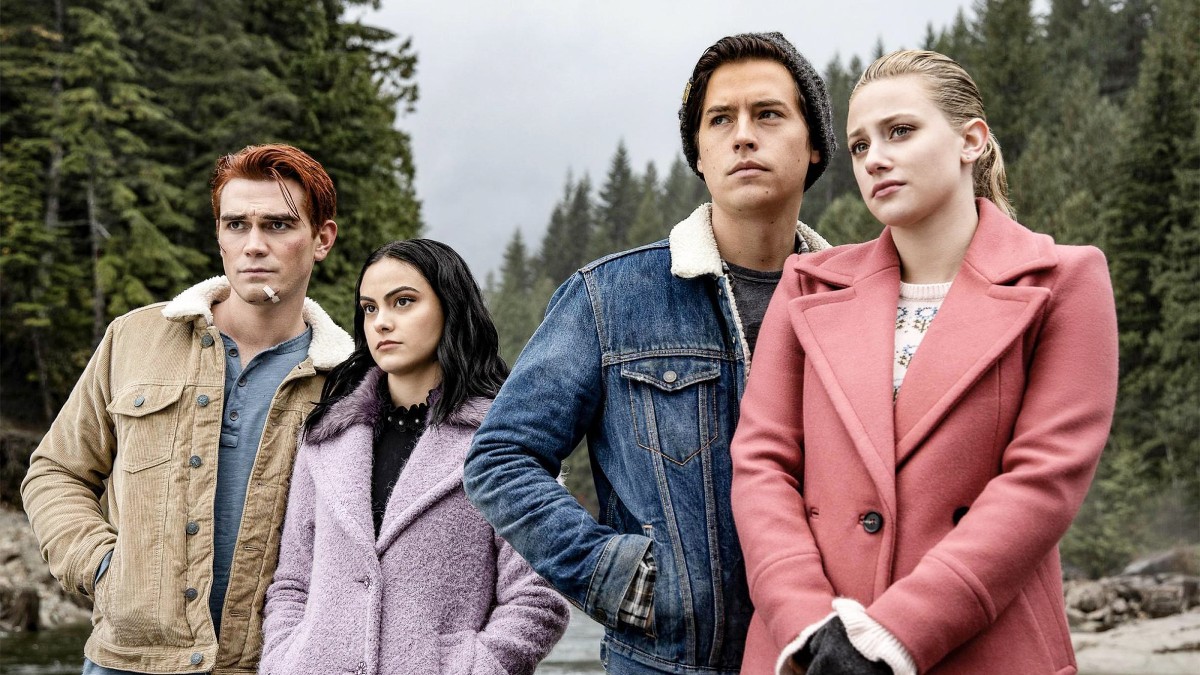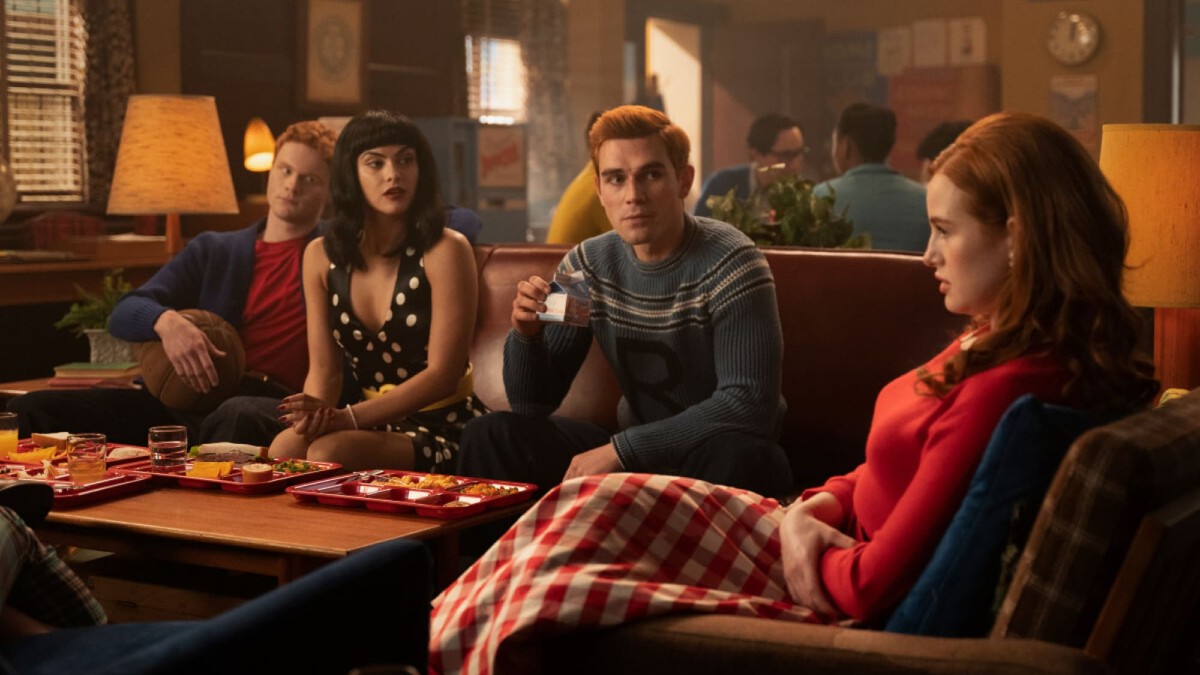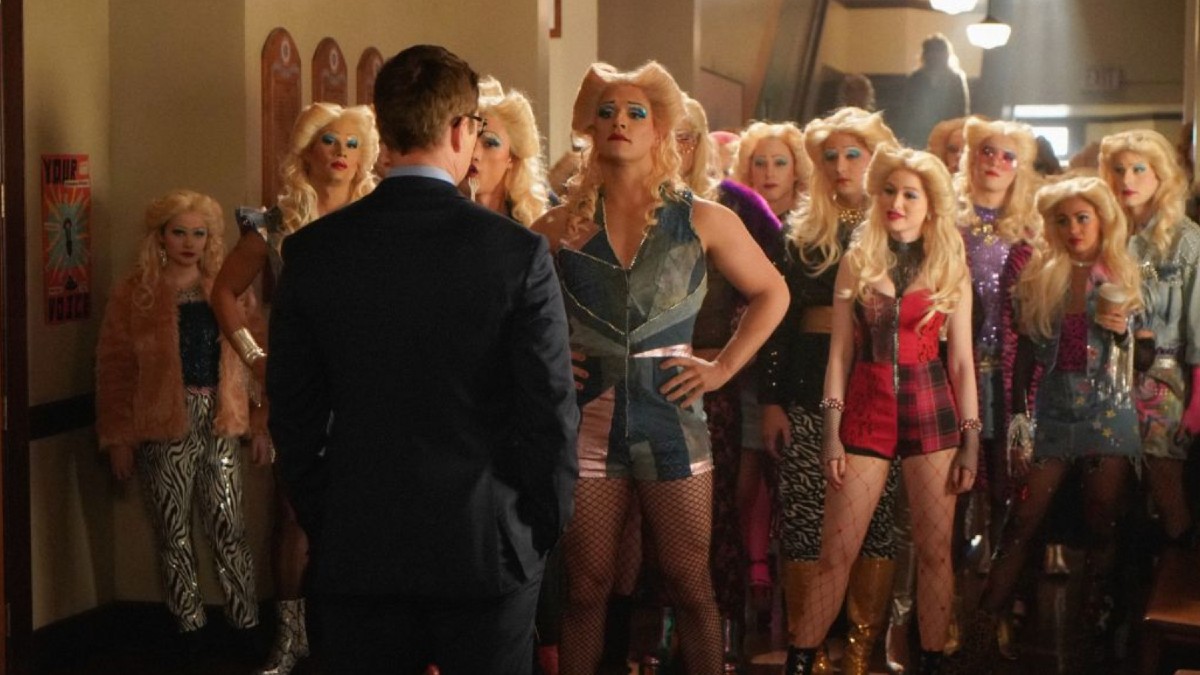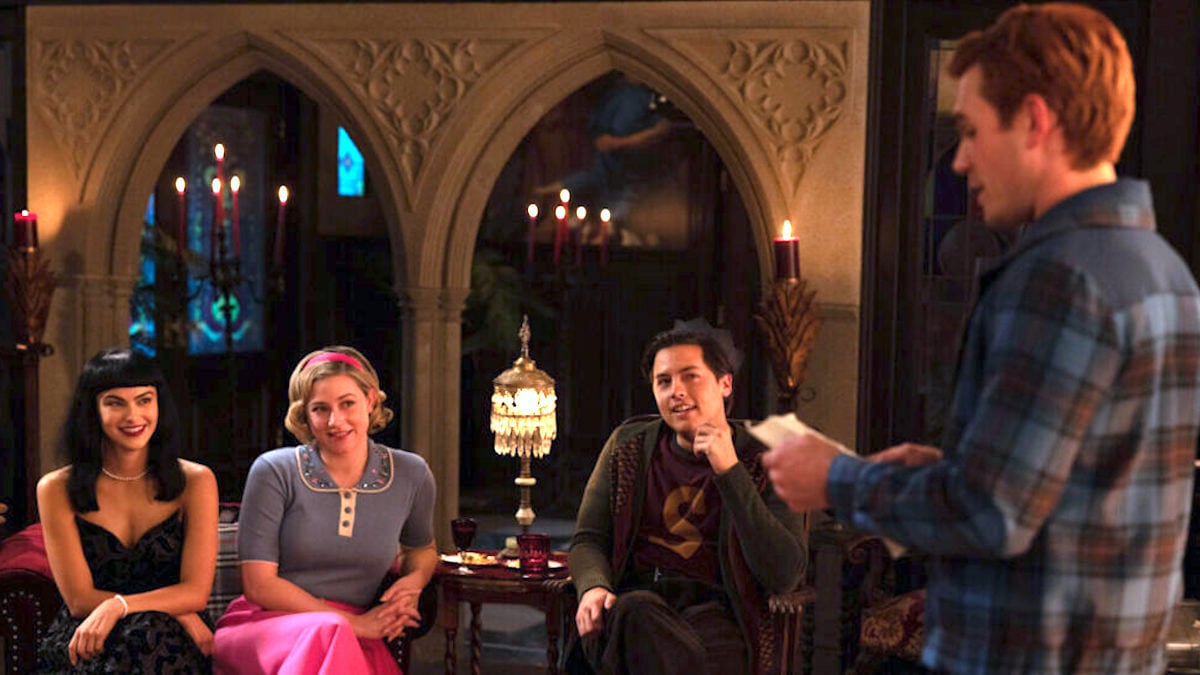Riverdale finally concluded its infamous run this week, and the headline-making drama managed to get people talking one more time. In the series finale, Riverdale decided to do something unheard-of in the mainstream: it resolved its seasons-long love square by having the cast enter into a polyamorous relationship.
Yes, Archie (KJ Apa), Veronica (Camila Mendes), Betty (Lili Reinhart), and Jughead (Cole Sprouse) decided ‘to hell with the formalities’ and began dating one another. Well, for the most part — although Betty remarks that she and Veronica were seeing one another within the poly coupling, she never specifies that Archie and Jughead were doing the same thing.
That got fans wondering. Riverdale has always been an LGBTQ+-friendly show. It has its own dedicated gay following that’s addicted to the melodrama and ridiculous plot lines. Kevin Keller (Casey Cott) is a gay man and a prominent supporting character. The love story between Cheryl (Madelaine Petsch) and Toni (Vanessa Morgan) spanned several seasons. So why didn’t Archie and Jughead end up explicitly hooking up, too?

According to a recent Variety interview, Riverdale producer Sarah Schechter revealed that there’s a pretty weak reason for that:
“I mean, that’s, like, too hot for TV. I don’t think there was a reason for it. I think there’s a fantastic, fantastic amount of LGBTQ representation on the show.”
Schechter’s comments are disappointing but unsurprising. Gay intimacy has been rendered taboo by years of homophobic oppression. Prime Video’s recent Red, White & Royal Blue romance is the perfect example: though its central sex scene was passionate, it was as tame as any sex scene in a PG-13 movie. Its rating still ended up being an ‘R’ after director Matthew López refused to ‘eviscerate’ the scene.
Achillean men, like Kevin Keller, are allowed to be background characters in shows like Riverdale. If you want your fill of gay media, you’re most likely going to have to look in the romance genre to find it. Gay, bisexual, and pansexual male leads are rarely found in genres like sci-fi, fantasy, or action. Sure, there are a scant few currently on shows that break this rule — Our Flag Means Death and Good Omens should not be discounted — but the fact remains that gay stories, by and large, exist on the periphery of the mainstream.

Achillean men aren’t allowed to show intimacy on TV: even the mere existence of a man who loves other men has been rendered as perverse by homophobes, making gay intimacy a taboo. Apparently, it’s easier to give in to the homophobes than to stand up for those who are attacked for nothing more than the way they were born.
Gay liberation cannot be achieved when you’re capitulating to these homophobic standards with a wink and a nudge. To say gay intimacy is ‘too hot for TV’ is singling it out; it recalls homophobic tropes about gay men being inherently sinful and sexual and dirty. It relegates the gay male experience to the background, where it can safely be ignored.
This is the same show that depicted Archie sleeping with his high school teacher. Obviously the show doesn’t endorse an adult taking advantage of a minor like that, but it still depicted it — there was no objection that this might be inappropriate for television. Which is how it’s supposed to be: the viewer understands the shows they watch don’t necessarily endorse the sometimes heinous things they depict. Television is supposed to be an elevated reality, full of scandalous doings and melodrama. It’s supposed to provide intrigue for the viewer to follow along.

So why is it that this is where the line is drawn? You’re telling me a hypothetical romance between two male leads, something that’s not even morally objectionable, is suddenly too taboo to show on television? That’s what’s too hot for TV? Did I mention Riverdale has featured two separate plot lines where an underaged named Betty moonlights as a dominatrix and stripper?
Look, Riverdale was never Shakespeare, and its ending wasn’t obligated to feature a romance between Jughead and Archie. But to discount the very possibility of it the way that Schechter has — and by extension, the show — just showcases the deep and abiding discomfort the media still has with gay intimacy. There are still LGBTQ+ people who can’t even hold hands with their partners when they walk down the street. How can that ever change when our own media is telling us that we’re “too hot for TV?”

